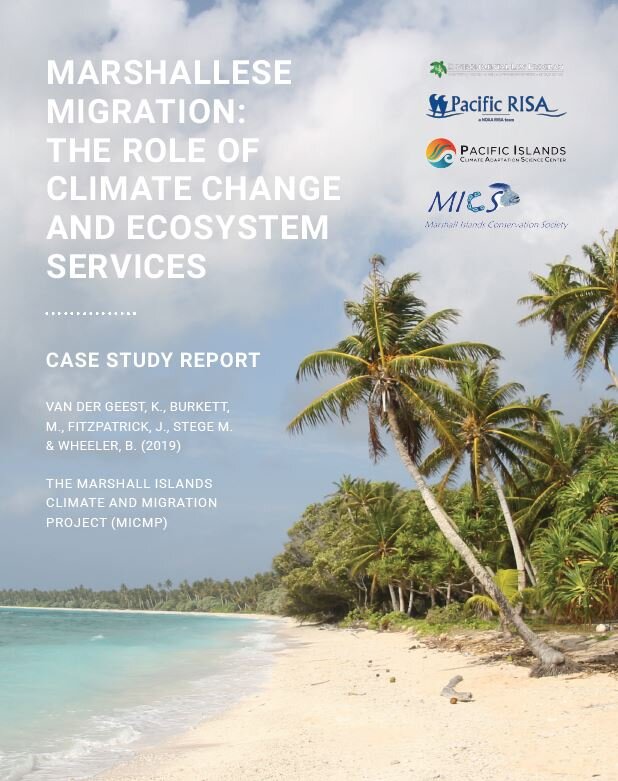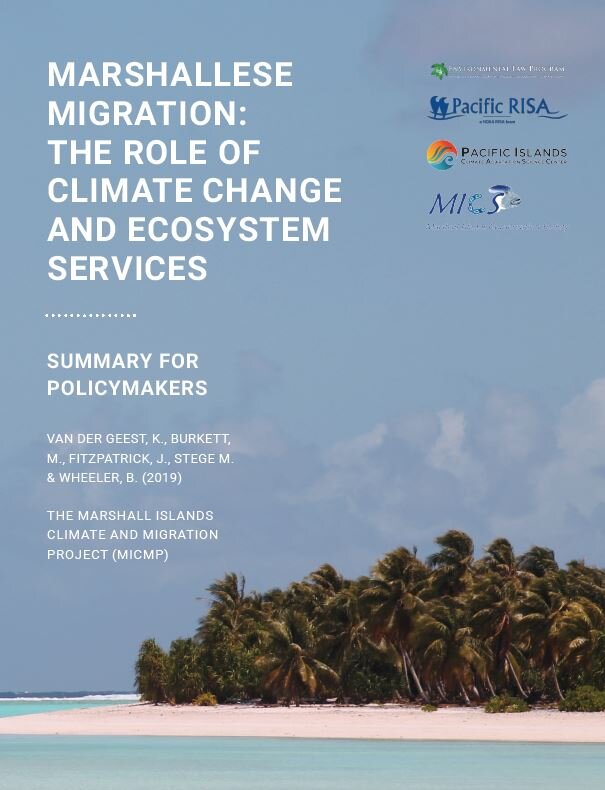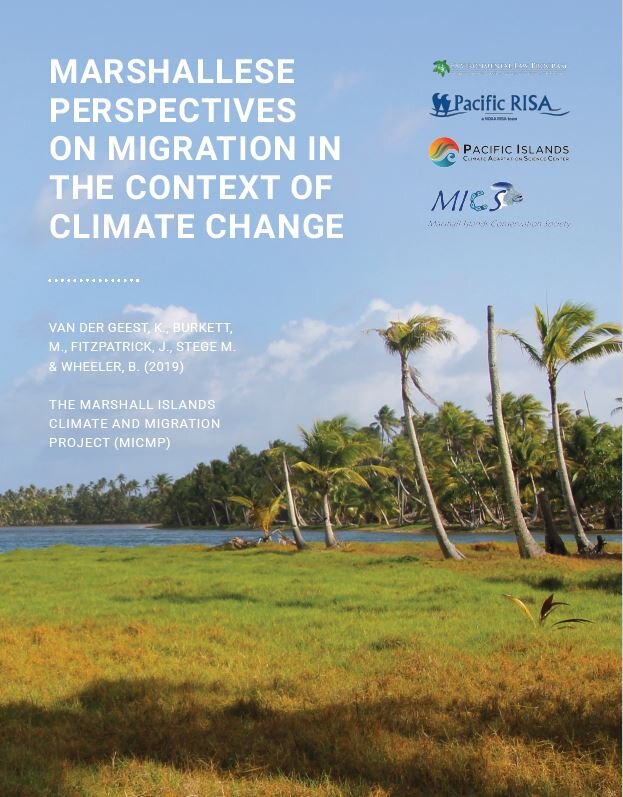Project Overview
What is the role of climate change and ecosystem services in the migration decisions of Marshallese Islanders?
As one of the lowest-lying island nation-states in the world, the Republic of the Marshall Islands (RMI) is acutely vulnerable to sea-level rise, flooding, and the associated intrusion of saltwater into crucial freshwater supplies. Persistent drought is further affecting agricultural production and access to drinking water.
Within the Marshall Islands there are substantial migration flows between islands and particularly from outer islands to the capital Majuro, Ebeye and the US military base Kwajalein. In addition, many are migrating to other countries, particularly the United States. The number of Marshallese residing in the U.S. has rapidly risen over the past two decades, from 7,000 in the year 2000 to 22,000 in 2010.
The factors triggering human migration are complex and often intertwined, making it difficult to pinpoint and address specific causes. For example, changes in ecosystems due to climate change can cause health problems or food insecurity, which may have greater consequences in communities with political, social, or economic tension.
Decision makers at local and state levels in both the RMI and US—for example those who design policy related to immigrant access to services—need information to better understand the factors contributing to current migration and to anticipate possible future impacts of climate on human migration. For more, see the Pacific Island Climate Science Center summary.





